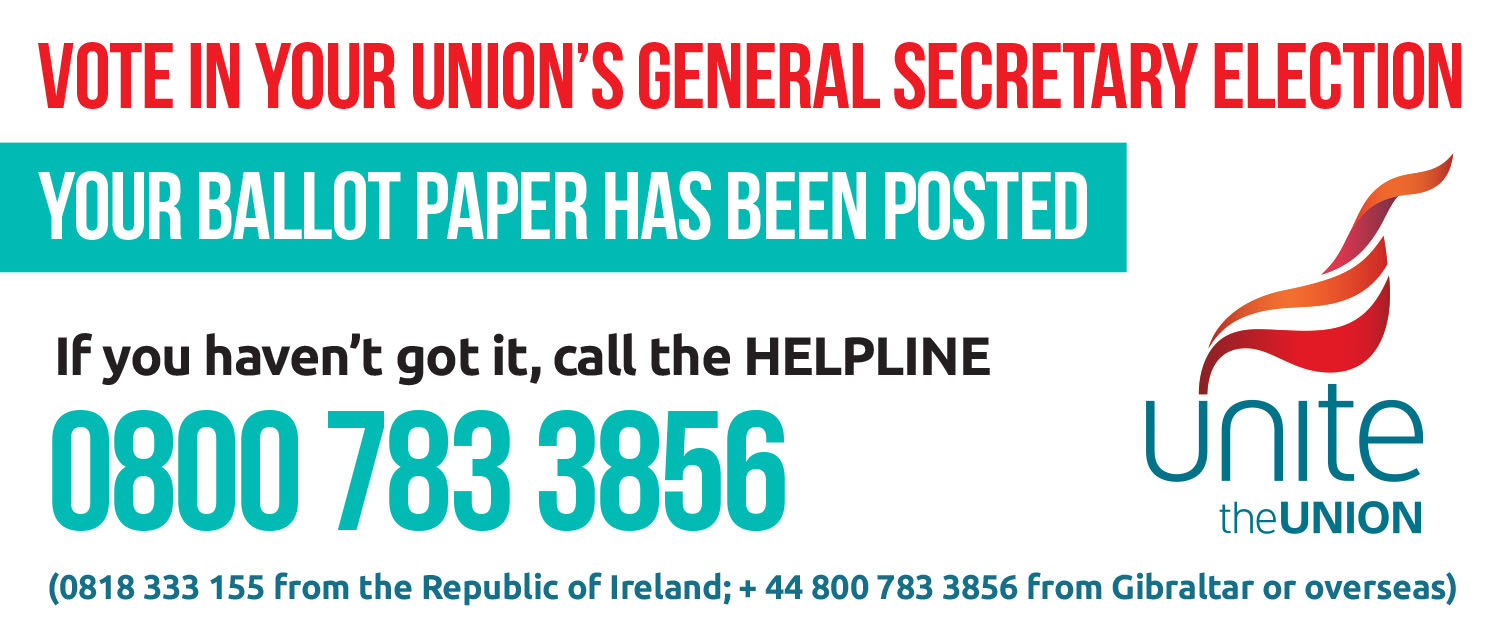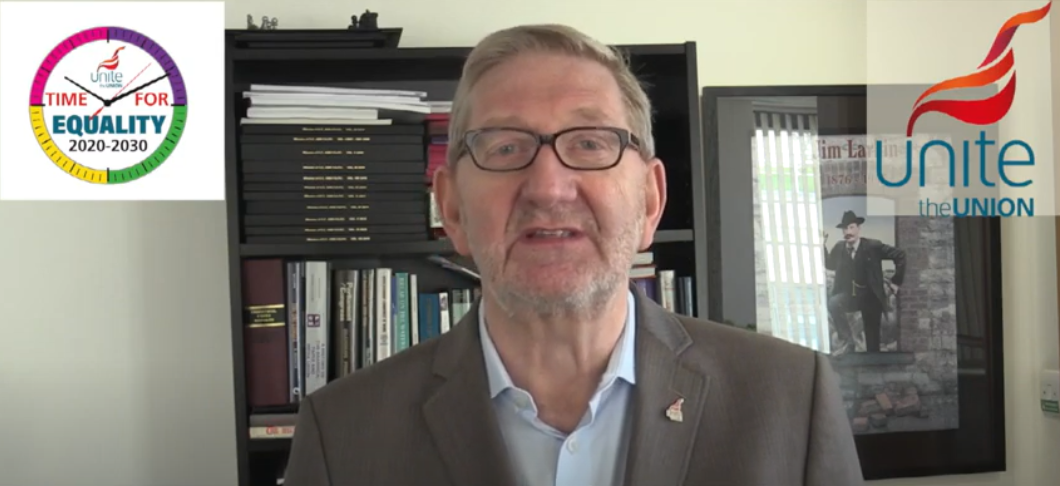EU: Vote for democracy and hope
When I vote for Britain to remain in the EU in June, and when I argue for the members of my union and others to do likewise in the months ahead, I will not be voting for the status quo.
I will not be voting for the EU, which has sought to impose eye-watering austerity — at the expense of the ordinary citizen, not the rich — on Ireland, Greece, Spain, Portugal and elsewhere.
I will not be voting for the EU which is seeking to stitch-up a pro big-business trade deal, TTIP, behind the backs of the people of Europe.
I won’t be voting for the EU which takes a cavalier view of democracy and the rights of nations to make their own political choices.
Above all, I will not be voting for David Cameron’s renegotiation package — a deal designed to protect the financial interests in the City of London and to pander to anti-migrant, anti-welfare sentiment.
So what will I be voting for? I will be voting for hope, for solidarity, and for a more democratic Europe — three tightly connected ideas.
Since their election, the Tories have introduced one proposal after another to further weaken and undermine the trade unions, and to starve the Labour Party of its traditional source of funding.
Now it seems they need assistance from the movement they wish to destroy.
As a professional negotiator I would be tempted to make the most of a situation like this. But it falls to us to behave in a more statesmanlike way, and to look at the bigger issues.
At risk
Persuading Unite members to vote for a campaign led by such an overtly hostile and anti-democratic government will be a challenge but I know that many jobs, particularly in manufacturing, will be at risk outside the vast market of the EU.
But to win, we need hope too.
For eight years now Europe has been in a tunnel marked “austerity.” Everything has been subordinated to righting the finance-first system that capsized in 2008.
It’s time to show people a way out, for Europe to speak as one voice for growth, for investment, for protection for the weakest.
We need a Europe that says it’s more important for young people to get their future back than it is for bankers to get their money back.
But because I believe such a Europe is possible, and that it is the sort of Europe millions of people want, I will argue that Britain needs to be in the EU to help bring it about.
David Cameron says he wants to stay in the EU, but it’s his own calls in recent years for Britain’s exclusion from the full range of EU employment and social laws that have created the belief among ordinary people that the EU is a big business club for the elite.
Cameron’s Europe will never make the British heart beat faster.
In the end, the outcome of this referendum will come down to the gut feeling of the British people, when they ask themselves the question: are they better off inside the EU or outside of it?
So what about solidarity? Can we rediscover a European Union of mutual assistance?
After WWII, billions in US Marshall aid, European economic reconstruction and debt forgiveness all benefited Britain and Germany.
Deeply impoverished
EU programmes have also helped some of what were deeply impoverished regions of Europe a generation or two ago to develop and build more prosperous societies.
Given the chance, I believe the peoples of today’s European Union would again choose that same ethos of investment, which holds to account the global corporations and banks that have wreaked so much havoc in recent years.
The Greek crisis last year showed a very different and less attractive face of Europe. Punishing austerity and the effective subjugation of the national democratic will put the EU in a very unattractive light indeed.
What principle is being upheld when Greece’s health service is pushed into ruin, when a generation is reduced to beggary in order to ensure that banks are repaid on time? It certainly isn’t solidarity.
Likewise, can any European — indeed, any human — be happy at Europe’s handling of the refugee crisis. Angela Merkel has shown far more humanitarian consideration than most EU leaders or governments, including our own, but leaving wretched people to drown or be gassed by police, as we have seen at Calais last week, betrays every ideal for which Europe is supposed to stand.
Solidarity
It should have higher ideals, and solidarity is perhaps the most important.
Leaving the EU will develop solidarity not one bit — rather it will speed up the rush to beggar-my-neighbour economics and anti-refugee brutality.
Moreover, British workers rely on the social charter for a range of basic employment and social rights. They rely on it for fair treatment in the workplace, paid holiday, maternity leave and the protections afforded through the working time directive.
The EU does at least offer British workers these bare minimum protections.
But if the “out” campaign were to prevail, many of those rights would be torn up by the triumphant Tory right faster than you could say “Milton Friedman.”
However, it’s not good enough to look at Europe as simply providing the lowest common denominator of employment rights on elected governments.
The only lasting way to solve the big problems, like “social dumping” — the practice of importing low-wage workers to dilute pay and conditions — is for the EU to stop accommodating every wish of the army of corporate lobbyists stalking the corridors of Brussels.
Real protection against such abuses would go a long way towards mitigating the concerns about the free movement of labour which we will hear a lot about in the weeks to come.
So I have a vision of a different Europe to the one on the ballot paper in June. Friends will call me utopian but I know that the better Europe I hope for will move from being a vision to an impossibility if we follow the “no” camp.
We cannot fight for a better EU if we are out of it. So I will be voting for the future on June 23.
This feature first appeared in the Morning Star, March 17
 Like
Like Follow
Follow


